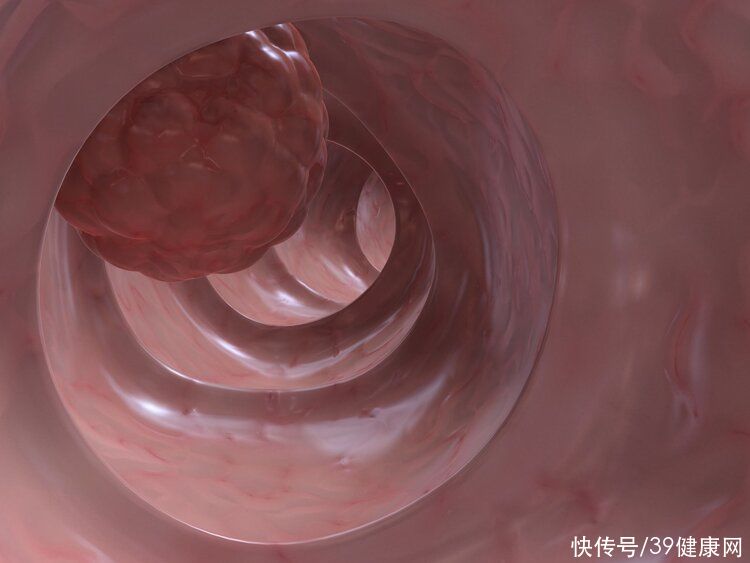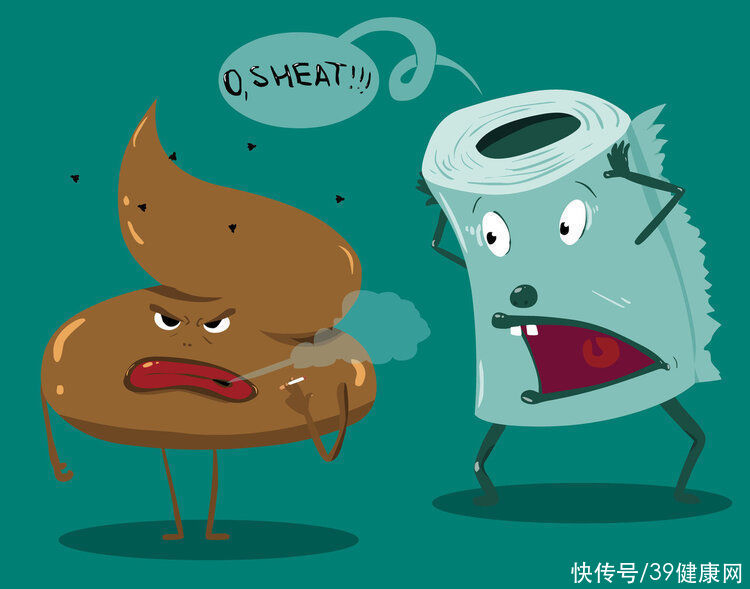In October last year, Aunt Xu began to have a change in her bowel habits. Because she had a history of constipation before, she never cared about it.
However, in the past month, Aunt Xu’s symptoms have changed from mild to severe, not only frequent defecation, but also blood in the stool for several days in a row. In some cases, there is still a feeling of anus falling before defecation. After daughter-in-law A Hua found out, she hurriedly registered her mother-in-law for DRE.
It was found that there is a mass in the rectum of Aunt Xu, which is very likely to be colon cancer.
In response, Director Peng Qirong of the Third Affiliated Hospital of Guangdong Pharmaceutical University said that the symptoms of rectal cancer are related to the progression of the lesion and the location of tumor invasion. Early stage cancer has no obvious manifestations, and usually grows in the lesion, which affects defecation or rupture of the cancer mass before obvious symptoms.
Changes in bowel habits are one of the common manifestations of bowel cancer. Is there a direct impact between constipation and cancer? Is constipation the “culprit” of cancer?

1. What did you experience from food to stool?
Going to the toilet is a daily experience. The ideal state is to have a smooth bowel movement in the morning. But occasionally there will be some situations that lead to unpleasant bowel movements.
From food to poop, what happens in the human body? When food enters the mouth, it is the first time the food “breaks down”, and through chewing and swallowing, the food enters the stomach.
The stomach acts as a “blender” that grinds food thoroughly to ensure smooth digestion. The mushy food flows into the small intestine and begins to be digested and absorbed. When it finally flows into the large intestine, food has basically been decomposed and absorbed, and it will be converted into feces in the intestine through the secretion of mucus.
Poop generally accumulates to about 200-300g in the body, and it will send a defecation instruction to the brain. Under normal circumstances, people have one row a day, so what is constipation?
Constipation is a decrease in the number of bowel movements, usually less than 3 times per week, Difficulty defecation and dry stools, which persist for a long time. According to the 2022 Guidelines for the Diagnosis and Treatment of Constipation with Chinese Proprietary Medicines in Traditional Chinese Medicine, the prevalence of constipation among ordinary people in my country is about 20%.
Long-term constipation can affect the sensitivity of nerves near the anus, and then fall into a vicious cycle of constipation, and the toxic substances that should be excreted have been unable to excrete.< /span>It will stimulate the intestinal tube to cause colon melanosis, colon polyps, and further stimulation may lead to colon malignancy.

In addition, chronic constipation can also lead to: p>
Liver and kidney affected: Since constipation toxins cannot be eliminated, they will be absorbed by the body through the blood. For a long time, liver and kidney functions will also be affected.
induced stroke: Difficulty defecation, may cause insomnia, affect work and rest, and even further induce Stroke.
Second, before the advent of bowel cancer, there will be a “warning” in the stool
The early cure rate of bowel cancer is very high, generally reaching 95%, but In my country, the early diagnosis rate is less than 10%, and more than 85% of patients are in advanced stage when they are found. Therefore, Xiaojiu recommends everyone to look down after going to the toilet. If you find some abnormalities, you should go through a digital anus examination or colonoscopy to screen for bowel cancer.
1. Blood in the stool
The cause of blood in the stool is mainly due to the friction between the stool and the tumor surface . Mild cases only show a positive fecal occult blood test, generally patients are painless, and the blood is mostly dark red and bright red; Severe cases may show mucus bloody stools, mucus pus and bloody stools or pure blood stools< /span>.
Many patients have blood in the stool due to hemorrhoids, so it is easy to ignore this symptom.

2. Change in bowel habits< /p>
Patients may have diarrhea, constipation or alternating diarrhea and constipation in the early stage. As the size of the lesion increases, the intestinal lumen becomes more and more narrow, and progressive constipation occurs.
In addition to frequent defecation, the patient also has a feeling of incomplete defecation. This symptom first occurs after getting up in the morning, and the defecation gradually increases.Several or 10 times a day, often even at night, with frequent bowel movements.
3. Changes in stool characteristics
If there is a tumor in the intestine, it can cause intestinal In some cases of inflammation, if the tumor is located close to the anus, it will irritate the intestines and can directly drain mucus and blood.
Tumor develops in the intestine, which is equivalent to the presence of foreign bodies, which will stimulate intestinal peristalsis. This process will form a frequent abnormal defecation reflex, and there may be no bowel movement. formed”, it was excreted out of the body,So the excreted stool is shapeless, sometimes very thin, sometimes very broken.

In addition, common symptoms of bowel cancer include abdominal pain, usually more Abdominal cramps when complicated with intestinal obstruction; abdominal mass, tumor or mass infiltrated with omentum and surrounding tissues, hard in texture and irregular in shape; systemic symptoms, tumor ulceration, blood loss and toxin absorption, which may It can cause symptoms such as anemia, low fever, fatigue, and weight loss in patients.
Third, why is colon cancer at an advanced stage when it is discovered? Colonoscopy is the “gold standard”
According to the 2020 Global Cancer Burden data, the incidence of bowel cancer in China is 555,000, which is the second most common cancer after lung cancer. span> However, according to the 2020 Rectal Cancer Diagnosis and Treatment Status Survey,64% of patients were completely unaware of the risk factors for colorectal cancer, 83% of the patients were in the middle and late stages at the time of diagnosis. Dr. Zhang Kai, Cancer Physical Examination Center, Chinese Academy of Medical SciencesIt is believed that many people fail to find out colorectal cancer in physical examinations, which may be related to the “two major abandonment of examinations”. Abandoning physical examinations respectively The “fecal occult blood & immune method fecal occult blood” in the “fecal occult blood” and the “digital anorectal examination” in the surgical routine, both of which are “gold fingers” that can help early detection of cancer. In order to detect bowel cancer as soon as possible, in addition to identifying the symptoms of bowel cancer, colonoscopy is essential Yes. colonoscopy is the gold standard for bowel cancer screening. The colorectal condition can be observed completely, and the suspicious lesions found can be further confirmed by biopsy. In addition to colonoscopy, fecal occult blood, digital rectal examination, imaging Tests and fecal DNA tests can help patients to identify the possibility of colon cancer. Especially the following high-risk groups: age >40 years old, long-term history of tobacco and alcohol, intestinal polyps history of chronic diarrhea, constipation, blood in the stool, family history of intestinal malignant tumor, long-term history of inflammatory bowel disease, and people who prefer high-protein, high-fat food, sedentary and lack of exercise,< span>Recommended screening for one option by age 40

The development of colorectal cancer is relatively slow, and the longer development period also gives us enough time for early screening, early diagnosis and early treatment. As long as we seize the opportunity, it can be effective Reduce bowel cancer mortality and achieve cancer-carrying survival.
References:
[1] “Man was constipated for a long time, and the result was colon cancer! Constipation “favorite” these habits, I hope you don’t account for any of them…”. Popular Science China. 2022-04-15
[2] “[Health Science] Stool mucus is actually related to bowel cancer, catch it Three “signatures” of quasi-intestinal cancer, one examination to rule it out! “. Cancer Hospital of Chinese Academy of Medical Sciences. 2019-08-12
[3] “Over 40 years old, diarrhea, constipation, weight loss? Come to Xiangya for bowel cancer screening! “. Central South University Xiangya Hospital. 2022-04-14
Reprinting is prohibited without the author’s permission